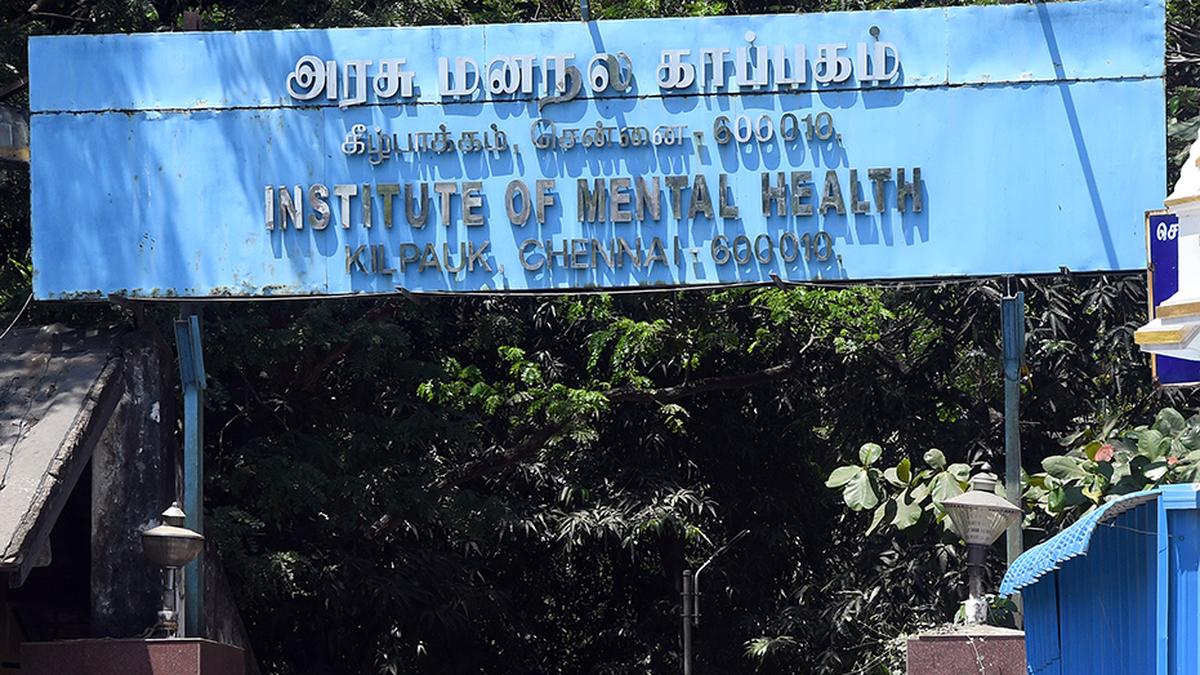
Putting patients in the centre
The Hindu
At the heart of the recent controversy over the management of the Institute of Mental Health in Chennai, rests a deep desire to improve services for those in need of mental health care and support. Setting this situation in context, Serena Josephine M. tries to trace the progress of the mental health movement in the State, looking at State and non-State actors, and examines the crucial question of what more needs to be done.
In October, two internal official communiques on improving the 230-year-old Institute of Mental Health (IMH) in Chennai unexpectedly set the cat among the pigeons. In the first, Health Secretary Supriya Sahu wrote to Director of Medical Education and Research J. Sangumani expressing disappointment with the lack of measures taken to improve the living conditions of IMH residents, and instructed the implementation of certain decisions already taken — including modernisation of kitchen, budgetary allocation for food, attire and self-care kit, an MoU between IMH and an NGO, additional caretakers, and independent third-party evaluation of IMH.
In the second, she said that there was a need to bring several institutional reforms to ensure that IMH emerges as the premier institution providing “gold standards” of care for its inmates. The institute has huge opportunities to raise resources from national and international organisations as well as from Corporate Social Responsibility (CSR) funds and needs guidance from experts working in mental health care programme, administrators and people with extensive knowledge in the field of treatment, care, rehabilitation and integration of recovered patients with their families and communities. “It is therefore essential that IMH is managed by a not-for-profit, wholly government-owned company registered under section 8 of the Companies Act. This will ensure that the government company set up will have the financial and administrative flexibility and is able to get the required expertise from the board of the company.”
Over the days, however, this move, intending to set the system in order, came to be interpreted as the State abdicating its responsibility towards its patients, and professional doctors’ bodies expressed strong opposition.
While Health Department officials insist that the current situation must be seen as an opportunity to clarify the role of the various actors in the mental health sector, and move forward sufficiently fortified to serve those with mental illness in the best possible way — to ensuring treatment, human rights, continuum of care, and psychosocial rehabilitation — there are detractors to the proposal to make IMH a ‘company’.
G.R. Ravindranath, general secretary, Doctors Association for Social Equality, said: “This stems from the National Mental Health Policy that encourages Public Private Partnerships, utilising services of civil society organisations and obtaining CSR funds. We are not opposing donations per se but it is the State’s responsibility to identify the deficiencies and take up measures to rectify them.”
The problem, however, will not be solved with a few donations, and in this instance, the government does not intend to give up control over the institution, as has been clarified several times since the controversy broke out. A senior official points out that the Tamil Nadu Medical Services Corporation Ltd. (TNMSC), which has a streamlined procedure for drug procurement, storage, and distribution, was incorporated under the Companies Act. It has since been able to bail out the State during shortages with Centre-supplied drugs, and has won plaudits for its functioning. In fact, contesting the narrative that the State had abdicated its responsibility, the official says, the proposed move would increase accountability and transparency, and bring in audits. In fact, the Special Purpose Vehicle envisaged in this case, is a model that brings in flexibility and the opportunity to tap funds. It helps in avoiding delays, and action can be quick in providing care, and certainly cannot be considered privatisation.
R. Sathianathan, former director of IMH, points out that for several years, funding was grossly inadequate, and manpower was insufficient for IMH. He suggests the need of the hour is investing funds to improve the infrastructure of the institute and renovate the wards.











